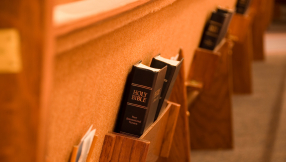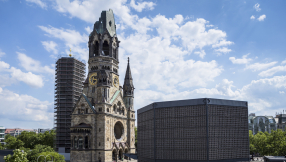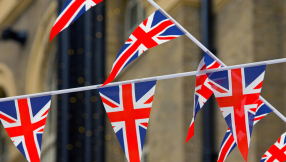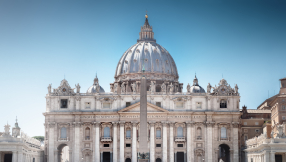Last week on this site, columnist David Robertson wrote an article with the title 'What Would Jesus Do About Transgender?' It was widely read, and as a Christian who is also a transgender person, I want to tell you that it was also extremely damaging.
Just that article title, by the way, dehumanises transgender people like me. Transgender (or trans) is not a noun. Or a verb. It is an adjective which should be attached to a noun. Trans and non-binary people exist and we deserve respect and dignity as human beings and as children of God.
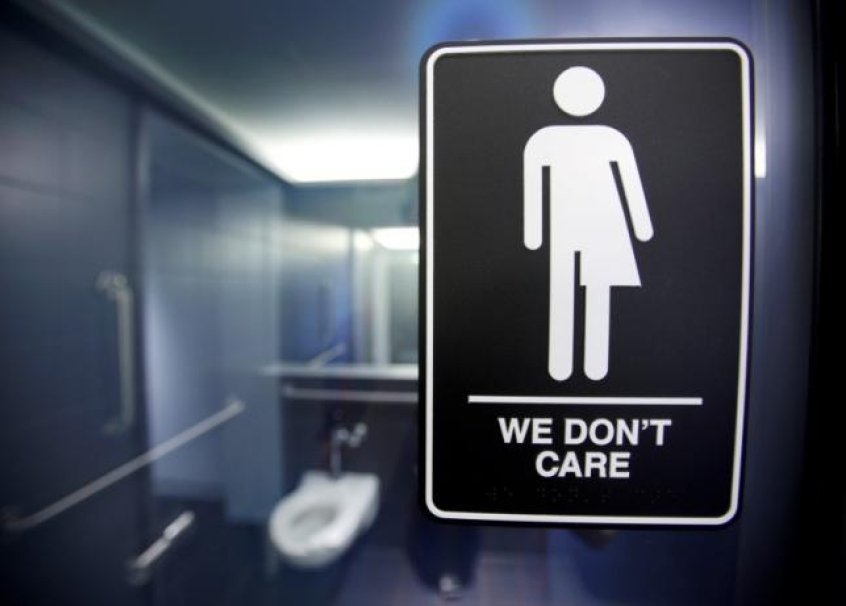
The article was published the day after Transgender Day of Remembrance, when trans communities and allies all over the world come together to acknowledge and remember all the trans people who lost their lives to transphobic violence over the course of the year – 325 of them in this, the deadliest year on record. And that's just the tip of the iceberg; trans suicides aren't even part of this statistic.
Rev Rachel Mann wrote on that day: 'Let us remember the dead because we are them and they are us: people longing to live, people with dreams, people bewildered and foolish and loving, by kind. Let us commit ourselves to changing the world.' All of us need to stop talking about trans people as if they are a theory. Our culture needs to stop debating trans lives and identities as though it's an academic exercise. We need to listen to the voices that have yet to be heard and learn from those who are willing to be open and share their experiences. We need to consider the language and words we use and their implications, along with our actions. David's not the first problematic article out there and it sadly won't be the last. There is currently an awful lot of fear-mongering and misinformation on television, online, in newspapers and magazines, and all of this is being shared within our communities.
As the Baptist minister Steve Chalke once said: 'It should never be the responsibility of those who are excluded to make a case for their own inclusion: but it normally is.'
So, please allow me to clarify a few things.
Cis & trans: If a person's assignation at birth is the same as their innate felt sense of gender, then they are Cisgender (cis means 'on the same side as'). If a person's assignation at birth is different from their innate felt sense of gender, then they are transgender.
The gender binary: The gender binary is a system of classification which models humans as universally divisible into two (and only two) categories – male or female. However it is now recognised that this system does not accurately reflect the diversity of human development, or the complexities of identity.
Non-binary: non-binary is an umbrella term often used to describe a person who does not identify as a man or a woman, or alternatively identify as a mixture of the two, or some might say they have no gender at all.
Sex v gender: It is important to understand the difference between gender identity, gender expression and the sex we were assigned at birth. Biological sex refers to the objectively measurable organs, hormones and chromosomes that we are born with. In his article, David seemed to confuse this with the term 'gender', which itself is a little more complex.
Gender identity is how you think and feel about yourself, your innate sense of who you are.
Gender expression is how you express your gender identity (based on traditional/stereotypical gender roles) through what you wear, how you act and behave and how you interact with others. This means we can present as incredibly feminine or incredibly masculine or it could be a mixture.
We need to move on. Trans and non-binary people's lives are not a debate. We exist. Trans men are men. Trans women are women. Non-binary people are non-binary.
We are also not a new phenomenon. We just didn't always have the words to describe and help articulate our gender identities. Now that we have found the right words we have been able to speak up and speak out. Kids are not 'too young' to understand their gender identity. Many adult trans people will tell you they knew they were trans from an early age.
Perhaps due to the growing visibility of trans and non-binary people in our different communities and because of some allies standing up and being visible in their support, we are seeing some positive effects. People of all ages are gaining the confidence to come out as trans or non-binary along with people being open and able to talk about there struggles and come to terms with their gender identity as well as seeking help from gender identity services. Sadly however, trans and non-binary people often face rejection from their families and their communities as well as bullying, verbal threats and physical violence. Toilets There have been too many articles and videos about trans people and toilets over the last year. It is a sad state of affairs that the media is more bothered about toilet etiquette than children trying to kill themselves. To quote Bethany Black, 'Statistically you're less likely to be attacked in a toilet by a trans person than by a member of Girls Aloud.'
Medically transitioning For some people it might take their whole life to discover who they really are. For others they might know from a very early age. All trans people are different. Some people as a way to deal with their gender dysphoria might want to have a medical transition and take hormones or have different surgical procedures but it's important to realise that some people can't medically transition and others don't want to. Also: it's not easy to get hormones, it can be a lengthy process. And importantly, hormones are not given to children. They may be given puberty blockers to allows them to explore their gender identity without having them go through the wrong version of puberty in serious distress. But children are not given hormones and to suggest otherwise is cheap demonisation.
Health and wellbeing
The statistics reported by Stonewall are staggering. Of trans young people, 89 per cent have self-harmed and 45 per cent have attempted to take their own life. Surely this is what we should be most outraged and upset about, especially as Christians who claim to care about the welfare of all people.
Some people – regardless of whether they are cisgender or trans – suffer with mental health problems. Being trans or non-binary isn't really the root cause of mental health issues. How society, the media, culture and the communities you are part of validates your identity is.
If LGBTQ+ people are not visibly welcome in church or in their communities, and if anyone is questioning their gender and/or sexuality see that LGBTQ+ people are not visibly welcome, of course this is going to have a huge impact on the way they feel about themselves. It will certainly add a feeling of shame and self-loathing. If they do not receive love, support, affirmation and celebration for who they really are it is easy to see how this will lead to poor mental health, self-harm or even suicide. Our churches can actually contribute to deteriorating mental health. Do we care about that?
Quoting the Bible
It's always a bit dangerous to quote one verse of the Scriptures and then claim, 'The Bible clearly says...' But since David played that card in his article, please allow me to do the same. In Galatians 3:28 Paul makes the amazing claim that, 'There is neither Jew nor Gentile, neither slave nor free, nor is there male and female, for you are all one in Christ Jesus' (NIV). He's writing to a mainly Jewish church telling them to include Gentile Christians into their family. But imagine the force of this verse first for the Jew, and then for the Gentile. For the religious insider, this is a lovely religious platitude that can be affirmed and then ignored; for the one who is excluded, this is literally at the heart of the gospel.
But Paul continues, way beyond his immediate theological point: it's the same for the slave, who for centuries would have read this verse very differently from the slave owner. And what of the final section? Paul literally says, 'no more is there male and female' – a direct reference to the Genesis 1 passage that David quoted in his article. In Jesus, these distinctions that divide us up into two categories are no longer as important as we think they are.
The important thing is to read this passage from the point of view of the one who has been excluded, not from the point of view of the one in the position of power and privilege. What did Jesus teach me? God is love. And I know that God loves all LGBTQ+ people without exception. What Jesus taught me was about love and acceptance. Jesus subverted the rules of his culture, of hetereonormativity and gender codes. He constantly and consistently championed the marginalised and he loved the outcast. What Would Jesus Do about Transgender people? My Bible suggests he would love them.
Jamie Fletcher is an LGBTQ+ activist, theatre and film director and musician. She tweets @jamie_fletcher.










